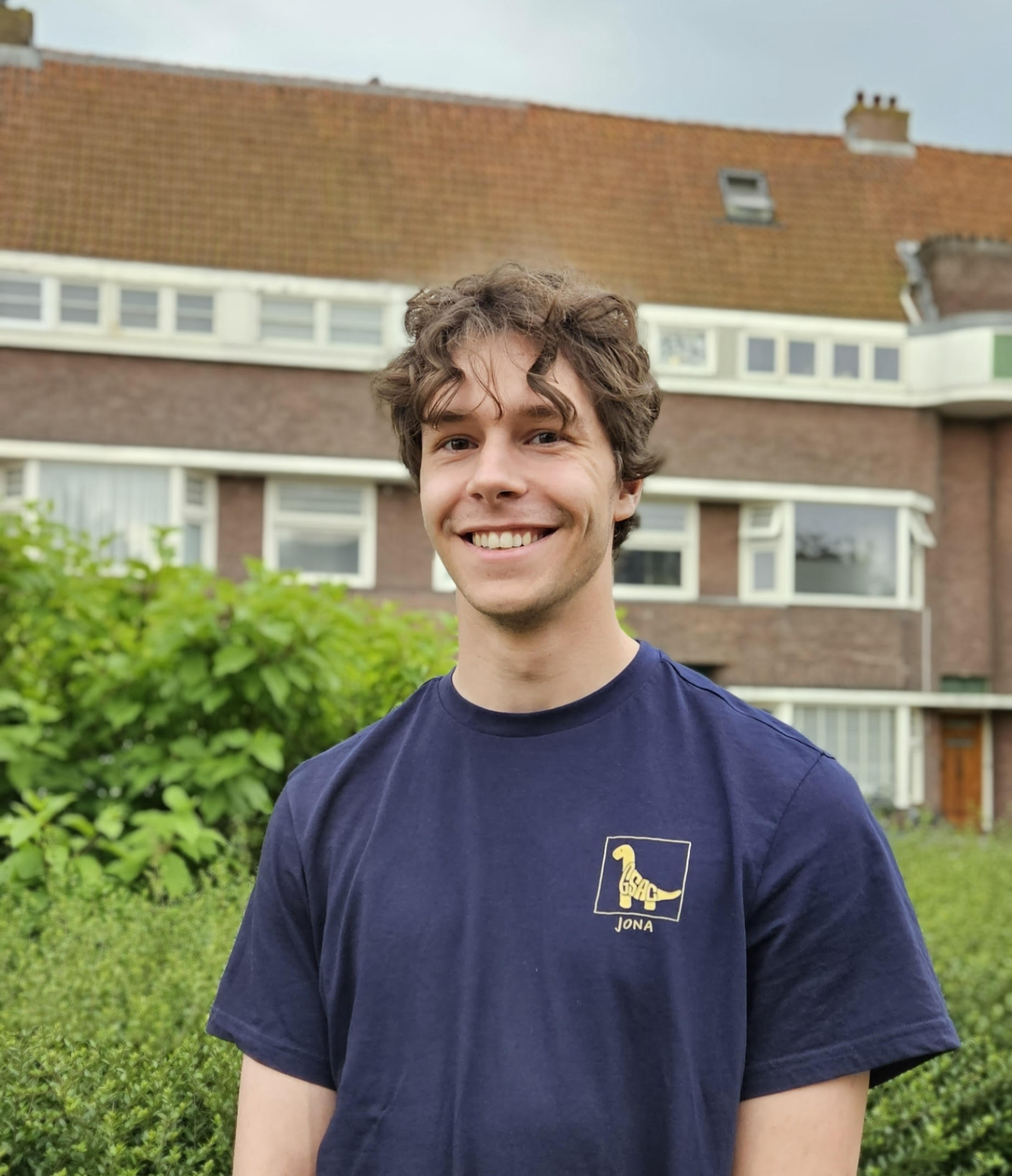Jona Janssen
The Faculty Committee wrote that they found it difficult this year to choose the best three from the selection of excellent students, and even harder to choose among those three. The jury certainly concurs with the last part of this comment, and it was only after considerable debate, also taking into account the way in which the candidates gave their pitch, that the jury chose Jona Janssen. Jona has excellent academic results. He graduated cum laude from the Bachelor’s programme in Philosophy, with an average mark of 8.7, completed a pre-Master’s programme in Artificial Intelligence/Computational Cognitive Sciences (average mark: 8.4), took propaedeutic course units in Psychology (average mark: 8.1) and is currently enrolled in two Master’s programmes: the Research Master’s programme in Philosophy (average mark so far: 8.7) and the Master’s programme in Computational Cognitive Science.
In his letter, Jona indicates that he has very broad interests, which matches his broad study choice. The latter also fits in with his interesting observation that ‘learning how to reason, write, and argue well is one thing, but if you are not knowledgeable about the topics you are interested in, then you will only get so far.’ Outside his studies, he also shows himself to be a versatile student (a multi-talent, as the faculty committee describes him). He enjoys listening to and making music and climbing mountains, and is interested in languages—he takes course units within the Bachelor’s programme in Linguistics. He served on the Faculty Council, was a student assessor on the Faculty Board, was active at STUFF (the Faculty study association), served as an editor for Qualia (the STUFF association magazine), and was a student member on the Examination Appeals Board. He also helped organize workshops and a winter school.
Jona gave an interesting and enthusiastic pitch in which he tried to deepen the understanding of the application of Artificial Intelligence (AI) by asking the right philosophical questions: for instance, how do you choose between two different models of AI?

